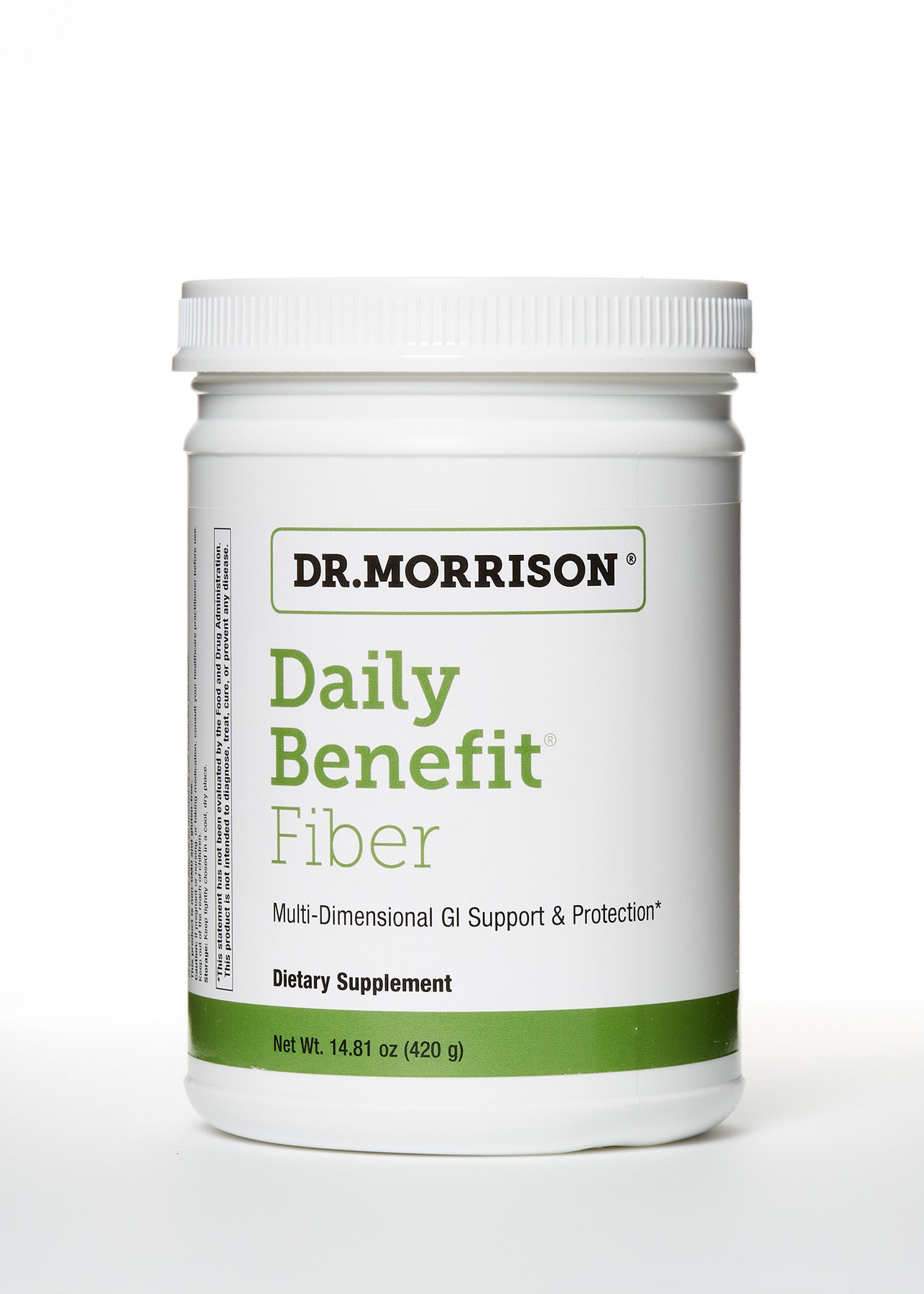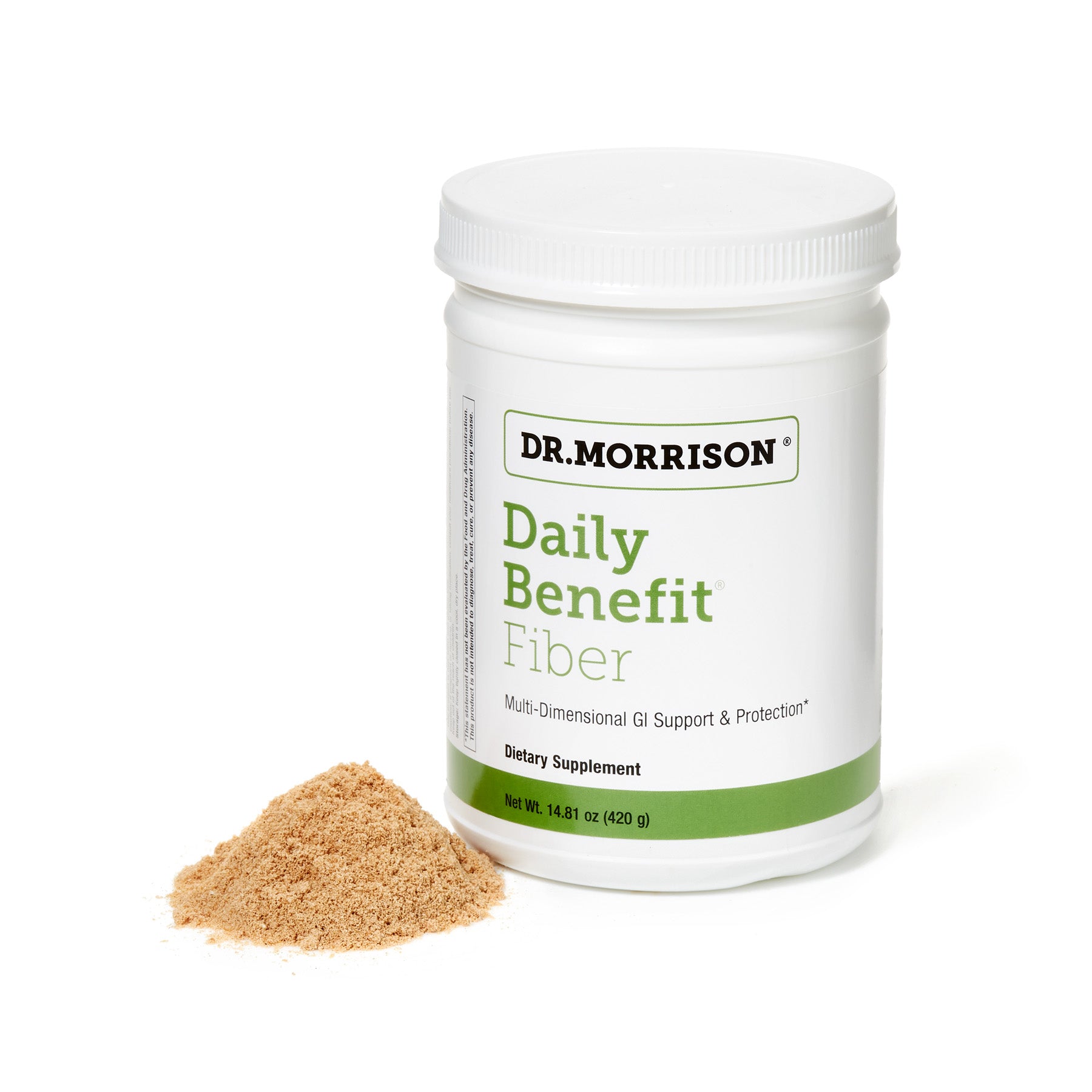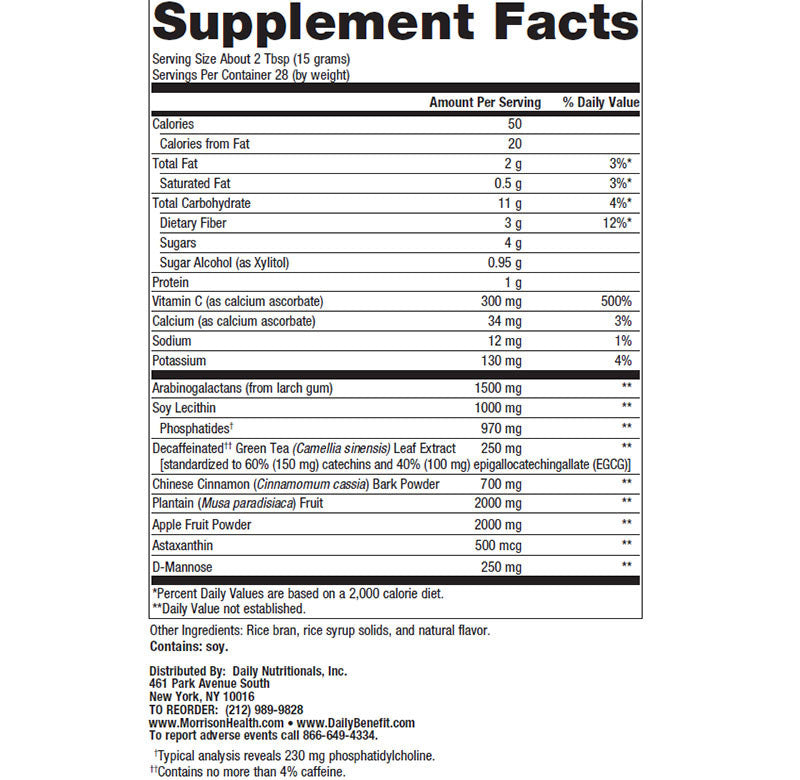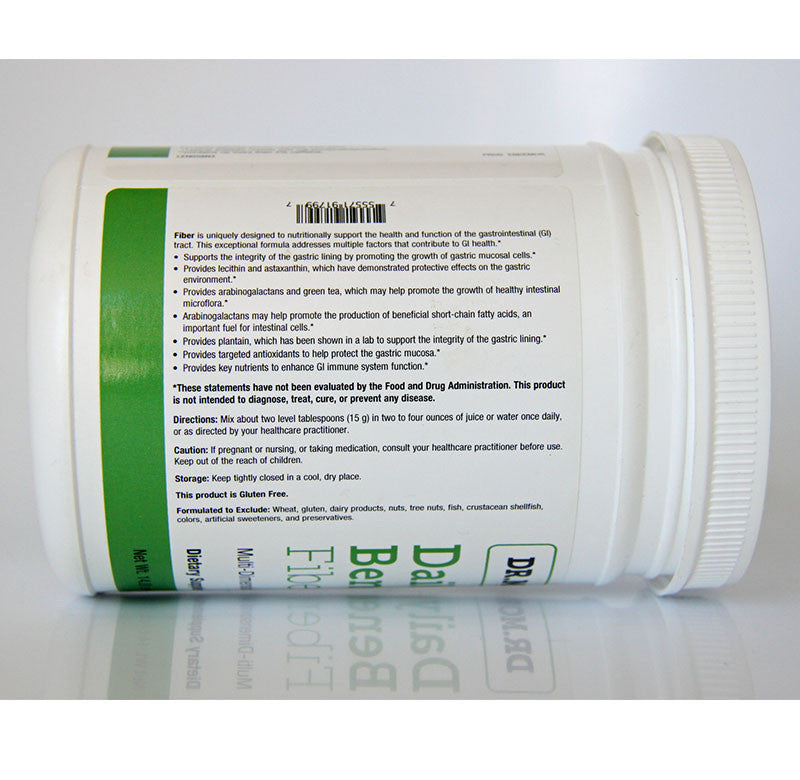Daily Benefit Fiber
$ 67.00
Size: 14.81 oz (420 g)
Comprehensive Fiber Blend for Intestinal Health, Immunity, and a Balanced Microbiome*
Gentle, Effective GI and Metabolic Support
Daily Benefit® Fiber is uniquely formulated to support the health and integrity of the gastrointestinal (GI) tract while offering additional metabolic and detox benefits. Made with hypoallergenic rice bran fiber, this exceptional formula addresses a wide range of digestive concerns- gently and effectively.*
Unlike common fibers that can irritate sensitive systems, rice bran is well-tolerated and provides soluble fiber that helps bind toxins, promote regularity, and support a balanced microbiome. It also plays a key role in stabilizing blood sugar, supporting heart health, and curbing cravings—making it a valuable tool for daily wellness or as part of a structured detox plan.*
Product Highlights:
- Supports the integrity of the gut lining and GI immune function*Helps bind toxins for safe, natural elimination through the digestive tract*
- Promotes growth of beneficial gut flora and production of short-chain fatty acids (SCFAs)*
- Provides targeted antioxidant protection for the GI mucosa*
- Reduces GI inflammation and soothes irritated digestive tissue*
- Encourages healthy bowel movements and regularity*
- Supports heart health and cholesterol balance* [1]
- Helps maintain healthy blood sugar levels and reduce appetite*
- Contributes to weight management and metabolic efficiency* [2]
Here’s what we love about the ingredients in Daily Benefit Fiber:
- Arabinogalactans – This prebiotic feeds healthy gut microbes, increases the short-chain fatty acids that fuel colon cells, and helps modulate the immune system.*[3]
- Soy Lecithin – Research shows lecithin phosphatides may help protect the esophagus from acid reflux,4 while aiding cognitive function and promoting healthy cholesterol.*[5-6]
- Green Tea Extract – These antioxidants control free radicals in the GI tract, while also feeding healthy bacteria and inhibiting harmful ones.7
- Chinese Cinnamon – This variety of cinnamon is antifungal and antibacterial for a balanced microbiome,8 while supporting healthy blood glucose and cholesterol.*[9]
- Plantain Fruit – Plantain has been shown to support the stomach lining and is associated with ulcer-healing effects.*[10-11]
- Apple Fruit Powder – Has been shown to act as an antioxidant and support a healthy inflammatory response.*[12]
- Astaxanthin – This carotenoid is a powerful antioxidant that can support blood sugar regulation[13], while protecting the gut from oxidative stress and inflammation.*[14]
*These statements have not been evaluated by the FDA and are not intended to treat or cure any disease.
You’ll Enjoy Daily Benefit® Fiber if you…
- Want an easy way to consume enough fiber daily
- Experience loose or poorly formed stools and related intestinal problems
- Want to lose weight
- Want to improve your digestion
Our Patients Love Dr. Morrison’s Daily Benefit® Fiber Because…
- It is easy to take – mix it into water, a shake or smoothie
- It tastes great!
- Is GMO-free and gluten-free
- Rice Fiber is great for those who are sensitive to psyllium, wheat, corn, or citrus
1 TABLESPOON (7.5 grams) PER SERVING
Vitamin C (as calcium ascorbate) 150 mg
Sodium 5 mg
Apple Fruit Powder 1 g
Plantain (Musa paradisiaca) Fruit Powder 1 g
Arabinogalactans (from larch gum) 750 mg
Soy Lecithin 500 mg
Phosphatides 485 mg
Chinese Cinnamon (Cinnamomum cassia) Bark Powder 350 mg
Decaffeinated Green Tea (Camellia sinensis) Leaf Extract [standardized to 60% (75 mg) catechins and 40% (50 mg) epigallocatechingallate (EGCG)] 125 mg
D-Mannose 125 mg
Astaxanthin 250 mcg
Other Ingredients: Rice bran, xylitol, rice syrup solids, and natural flavor.
Contains: Soy
Mix about 1 level tablespoon (7.5 g) in 2-4 ounces of juice or water once daily, or as directed by your healthcare practitioner.
Caution: If pregnant or nursing, or taking medication, consult your healthcare practitioner before use.
- Dietary fibre intake and risk of cardiovascular disease: systematic review and meta-analysis
- Dietary fiber and weight regulation
- The structure and prebiotic activity of arabinogalactan from Ferula Kuhistаnica
- Systemic phosphatidylcholine pretreatment protects canine esophageal mucosa during acute experimental biliary reflux
- Positive Effects of Soy Lecithin-Derived Phosphatidylserine plus Phosphatidic Acid on Memory, Cognition, Daily Functioning, and Mood in Elderly Patients with Alzheimer’s Disease and Dementia
- Influence of Soy Lecithin Administration on Hypercholesterolemia
- Effects of green tea consumption on human fecal microbiota with special reference to Bifidobacterium species
- Cinnamomum: The New Therapeutic Agents for Inhibition of Bacterial and Fungal Biofilm-Associated Infection
- Cinnamon Improves Glucose and Lipids of People With Type 2 Diabetes
- Indigenous anti-ulcer activity of Musa sapientum on peptic ulcer
- A natural flavonoid present in unripe plantain banana pulp (Musa sapientum L. var. paradisiaca) protects the gastric mucosa from aspirin-induced erosions
- Phenolic Profiles and Contribution of Individual Compounds to Antioxidant Activity of Apple Powders
- Astaxanthin ameliorates features of metabolic syndrome in SHR/NDmcr-cp
- Anti-Oxidant and Anti-Inflammatory Effects of Astaxanthin on Gastrointestinal Diseases
Additional study:
Dietary fibre intake and risk of cardiovascular disease: systematic review and meta-analysis





